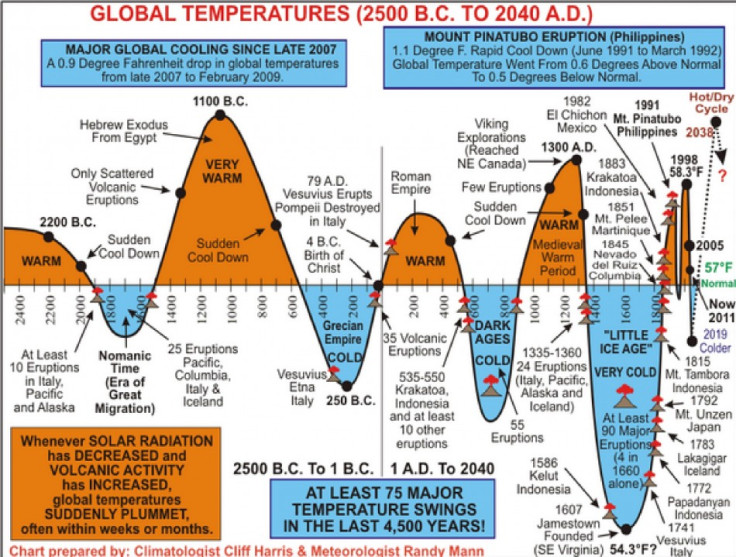Climate change: Has China coal surge helped slow down global warming?

China's soaring coal consumption in the last decade held back global warming as sulfur emissions served as a coolant, according to a study led by Boston University.
While 2005 and 2010 are tied as the hottest years on record, sceptics have pointed out that the absence of a steady rise in temperatures from 1998 to 2008 challenges the view that people are heating up the planet through greenhouse gas emissions.
Robert Kaufmann, a professor at Boston University, said he was motivated to conduct the study after a sceptic confronted him at a public forum, telling him he had seen on Fox News that temperatures had not risen over the decade.
"Nothing that I had read that other people have done gave me a quick answer to explain that seeming contradiction, because I knew that carbon dioxide concentrations have risen," Kaufmann told AFP.
After research, the US-Finnish study, published in the Proceedings of the National Academy of Sciences, found coal as the potential responsible.
The report explains that in the past decade, the burning of coal has seen a surge, particularly in China, whose economy has grown at a rapid pace, and coal emits sulphur, which stops the Sun's rays from reaching the Earth.
Kaufmann said that previously, greenhouse gas emissions had also soared in the post-World War II economic boom in Western countries and Japan.
"What happened was at the same time, sulphur emissions increased very rapidly, thereby cancelling much of the greenhouse gas effect," Kaufmann said.
Global temperatures rose after the early 1970s when major developed nations started to take action to curb sulphur emissions, the study said. Global coal consumption again rose by 26 per cent between 2003 and 2007, with China accounting for more than three quarters of the increase.
China remains the world's largest greenhouse gas emitter and its output keeps rising. But it has also started to take action to address rampant pollution, including by installing scrubbers on its coal plants.
"So we already see temperatures starting to increase again. It rose in 2009, it rose in 2010 and that may be one reason for that increase," Kaufmann said of the Chinese moves.
Both the US and Chinese governments have said they want to further develop the coal industry in the future, but while sulphur serves as a temporary coolant, it also contributes to major problems, such as acid rain and human respiratory problems.
Warning that it might not be the best solution to the global warming problem, Kaufman explained that turning to sulphur to curb global warming is like saying, "We'll pick our poison."
"You could certainly make that argument, but I don't think many people would view that as a very satisfactory solution, especially if it meant living in a very polluted atmosphere like in China," he said.
The study's co-authors included Michael Mann, a prominent member of the UN scientific panel whose landmark 2007 report warned that climate change was unequivocal and mostly caused by humans.
The report also found additional factors that limited warming in the period, including a natural dip in solar activity and the effects of the El Nino and La Nina ocean patterns.
However some analyst have criticised the study and Joe Romm, a fellow at the left-leaning Centre for American Progress, criticized the study for speaking of a hiatus in surface temperatures. He pointed to record temperatures in 2005 and 2010 and a rise in ocean heat.
"There has been no hiatus in global warming," Romm wrote on his blog, saying that the years 1998 and 2008 were "the favourite cherry-picked endpoints of the deniers" due to outside factors such as El Nino and La Nina.
© Copyright IBTimes 2025. All rights reserved.





















